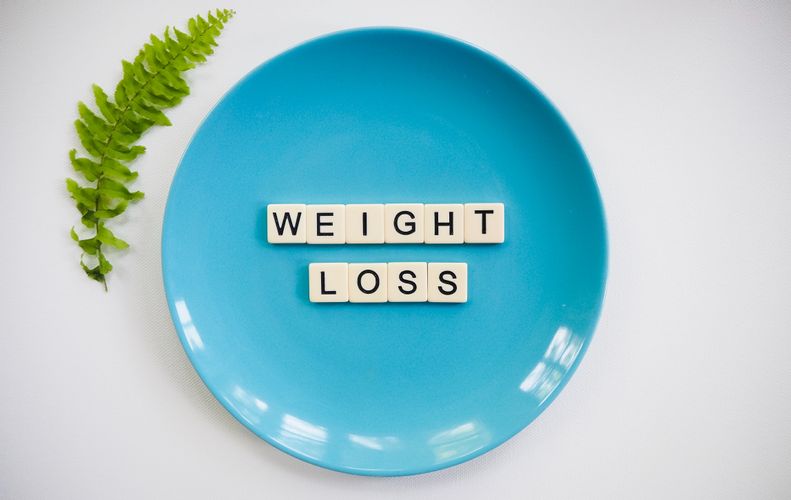Table of Contents
Does Hypnotherapy Work for Weight Loss?
How Does it Work?
Smoking and Weight Loss
Success, Effectiveness, and Statistics
Cost of Hypnotherapy for Weight Loss
Resources: CDs and DVDs
Does Hypnotherapy Work for Weight Loss?
Although the quality of scientific research around hypnotherapy and weight loss is questionable, studies have shown hypnotherapy to be effective in aiding weight loss especially when combined with diet and exercise. Hypnotherapy may also be helpful in assisting in the feeling of being full, also called satiety. Other studies have shown people undergoing hypnotherapy to report a better quality of life, which may also influence one's ability to lose weight.
How Does it Work?
Hypnosis is a form of concentration. It is usually done with a hypnotherapist who will guide you into a state of relaxation, where you will then repeat certain verbal messages to yourself, such as, "I am free from the desire to eat donuts" or "Making choices to eat foods that support a healthy weight comes easily to me".
Messages are agreed upon between you and the hypnotherapist prior to your session and are personalized to fit your particular needs and situation. Other types of hypnotherapy may include the use of visualization and mental images which support you making good decisions about food and exercise.
Smoking and Weight Loss
Several studies have shown hypnotherapy to be helpful for people trying to stop smoking. Because quitting smoking is often associated with a gain in weight, some smokers are reluctant to stop smoking. Hypnotherapy may be a natural method to help smokers stop smoking while also reducing cravings for both smoking and/or foods which may produce weight gain.
Other holistic approaches to consider include:
-
Mindfulness meditation
-
Yoga
-
Tai Chi
-
Acupuncture
-
Cystine, a natural supplement
Success, Effectiveness, and Statistics
You may be wondering how successful hypnotherapy is for weight loss. In Kirsch's analysis, weight loss significantly higher for people who utilized hypnosis, with 6 pounds lost without hypnosis and 14 pounds lost with it. In Cochrane's analysis, the amount of weight lost using hypnotherapy was over nine times the amount lost by people who did not use hypnosis after one month and 34x after six months.
| Hypnotherapy and Weight Loss Statistics | ||
| Group | One-month weight loss | Six-month weight loss |
| Hypnosis | -8 | -17.12 |
| No Hypnosis | 1.5 | -0.5 |
*From the Cochrane study, see references below
Depending on the studies examined, there is evidence suggesting the following:
-
Hypnosis doubled the amount of weight loss
-
Hypnosis was 34x more effective in helping people lose weight
-
9 out of 10 people using hypnotherapy lose more weight and are able to keep it off compared to people who do not use hypnotherapy
Cost of Hypnotherapy for Weight Loss
Hypnotherapy prices vary by location and practitioner. According to the National Association of Professional Hypnotherapists, sessions range from $75 to $150.
Session Length
The length of your session may also affect the cost. Session are generally 60 or 90 minutes in duration. Longer sessions will often have a higher price associated with them.
Packages
Some therapists will sell packages for weight loss or smoking cessation, which may range between $300 and $400 for six sessions. Packages with more sessions may save you more money, such as a package of ten sessions for $500, bringing the per session cost down to $50.
Books, CDs, and Videos
There are many books, CDs, and videos available to help you lose weight using hypnosis. Here are a few to consider:
-
The Weight Is Over : Hypnosis/Meditation for Lasting Weight Loss by Robert Shapiro
-
Stop Hiding Behind Your Weight - Hypnosis & Meditation (The Sleep Learning System)
-
Natural Rapid Weight Loss with Guided Meditation & Hypnosis by Catherine Perry
Self-hypnosis for Weight Loss
Self-hypnosis is similar to meditation. In a self-hypnosis sessions, you would put yourself into a state of hypnosis, then go through guided imagery or affirmations to help you lose weight.
Weight Loss Scripts
Here are some weight loss scripts to consider when trying to use self-hypnosis for weight loss.
-
Free Weight-loss Script from the American School of Hypnosis
-
Hypnosis for Weight Loss Script and MP3 - iNLP Center
References
Allison, D. B., & Faith, M. S. (1996). Hypnosis as an adjunct to cognitive-behavioral psychotherapy for obesity: A meta-analytic reappraisal. Journal of Consulting and Clinical Psychology, 64(3), 513-516. http://dx.doi.org/10.1037/0022-006X.64.3.513
Bolocofsky, D. N., Spinler, D., & Coulthard-Morris, L. (1985). Effectiveness of hypnosis as an adjunct to behavioral weight management. Journal of Clinical Psychology, 41(1), 35-41. https://pubmed.ncbi.nlm.nih.gov/3973038/#:~:text=This%20study%20examined%20the%20effect,and%20long%2Dterm%20weight%20change.&text=However%2C%20at%20the%208%2Dmonth,treatment%20exhibited%20little%20further%20change..
Cochrane, G., & Friesen, J. (1986). Hypnotherapy in weight loss treatment. Journal of Consulting and Clinical Psychology, 54(4), 489-492. https://doi.apa.org/doiLanding?doi=10.1037%2F0022-006X.54.4.489 .
Dare S, Mackay DF, Pell JP. Relationship between smoking and obesity: a cross-sectional study of 499,504 middle-aged adults in the UK general population. PLoS One. 2015;10(4):e0123579. Published 2015 Apr 17. https://pubmed.ncbi.nlm.nih.gov/25886648/#:~:text=Results%3A%20The%20study%20comprised%20499%2C504,%25%20CI%200.81%2D0.86).&text=Conclusion%3A%20Beliefs%20that%20smoking%20protects,among%20younger%20and%20heavier%20smokers.
Kirsch, I. (1996). Hypnotic enhancement of cognitive-behavioral weight loss treatments - Another meta-reanalysis. Journal of Consulting and Clinical Psychology, 64(3), 517-519. https://pubmed.ncbi.nlm.nih.gov/8698945/
Wilson, A., Lovelock, F., Stradling, J., & Roberts, D. (1998). Controlled trial of hypnotherapy for weight loss in patients with obstructive sleep apnoea. Int J Obes Relat Metab Disord, 22(3), 278-281. Retrieved December 20, 2018, from https://www.ncbi.nlm.nih.gov/pubmed/9539198 .





















